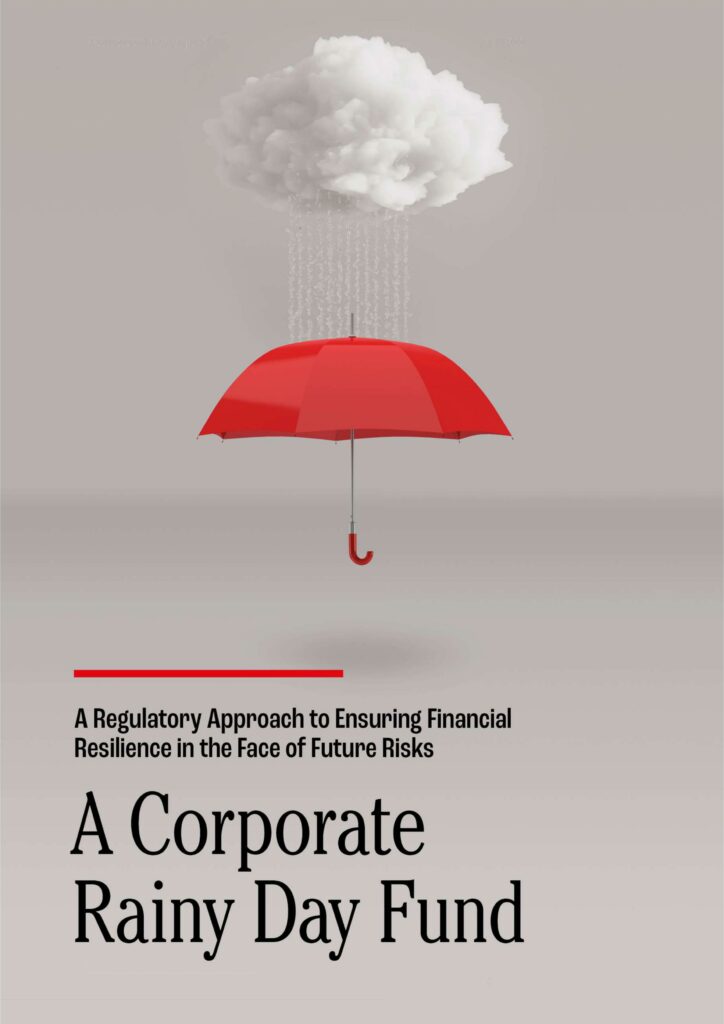Non-financial corporates are massively underprepared for future economic crises and overly reliant on government bailouts, according to a new report published by 2° Investing Initiative. The report, “A Corporate Rainy-Day Fund,” is published as the COVID-19 crisis has triggered what may be the largest bailout of modern times, and as climate change is set to increase the frequency and intensity of future systemic threats.
The report examines four mechanisms intended to strengthen corporate financial resilience – cash, finance, insurance, and contractual exits – and finds that all of these are deficient in different ways. As a result, weak corporate financial resilience in the current crisis has once again required massive government bailouts – effectively turning bailouts into the policy of first resort rather than last resort. If non-financial corporates do not take concerted action to strengthen their resilience, they will be woefully unprepared for the next crisis at a time of growing climate disruption.
What’s more, lack of financial resilience can create political pressures for governments to trigger a “high-carbon bailout” — potentially delaying the much-needed energy transition even further. Preparing now can thus ensure that even if companies are not ready, policymakers are.
Read the report here.
In order to strengthen corporate financial resilience, and to ensure that bailouts are only implemented when all other options have failed, the report calls for financial and economic policymakers to enact two key reforms:
- Change the rules related to shareholder buybacks and dividends to strengthen corporates’ cash reserves and balance sheets, and;
- Implement mandatory business interruption insurance.
These recommendations are intended to reduce the need and scale for bailouts, not to eliminate them entirely. This will ensure that when bailouts are used, they are consistent with wider policy goals and limit future moral hazard to the greatest extent possible.
More about 2DII’s long-term risk management research program
This report is part of 2DII’s long-term risk management research program, which aims to integrate long-term risks, especially those related to climate change, into financial markets and supervisory practices. The program combines a number of current and past research streams, including the Tragedy of the Horizons research project (2015-2017), 2DII’s work on climate and sustainability stress-testing, and its broader research initiatives on integrating long-term risks into private sector and government practices.
The program is part of the International Climate Initiative (IKI). The Federal Ministry for the Environment, Nature Conservation and Nuclear Safety (BMU) supports this initiative on the basis of a decision adopted by the German Bundestag. This report has also received funding from EIT Climate-KIC.





